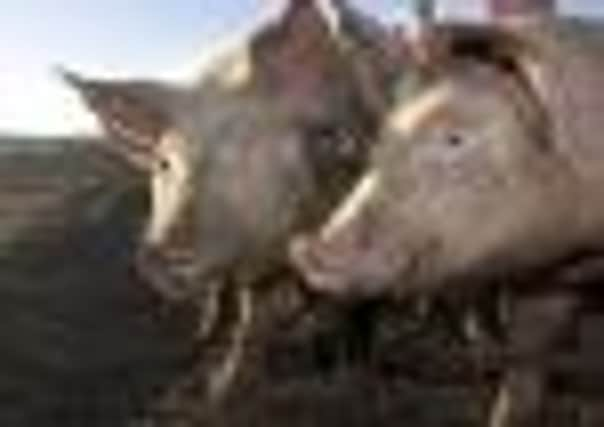Price rise warning in pig farm shake-up


A BPEX report says governments and customers need to learn from the ongoing upheaval in egg farming and make commitments which will moderate the impact when a similar upgrading of standards for pigs takes effect. However, the UK should benefit overall.
The new rules include standards for space allocation, flooring construction, feeding and provision of ‘toys’, but the main element is a limit to the time sows can be kept isolated or tied up during pregnancy, to reduce the abortion rate and maximise piglet weights.
Advertisement
Hide AdAdvertisement
Hide AdEven more stringent rules against so-called ‘stall and tether’ systems have been in place in the UK since 1999 and although the levelling up of standards will help, most of the Continentals will still have the advantage of being allowed four weeks of isolation immediately after mating. UK farmers are already largely already compliant with the other rules.
The BPEX survey confirms suspicions that a lot of farmers on the Continent will not meet the deadline on the main issue. But chairman Stewart Houston says in a foreword: “The commission is adopting a hard line, taking the view that the integrity of the EU is at stake.”
The report adds that the experience with eggs suggests supermarket buyers will impose the new standards even if bureaucrats do not manage to.
BPEX predicts: “Pig production is likely to fall between five per cent and 10 per cent and processors and retailers are likely to face substantial price increases – at least 10 per cent in all likelihood.”
Advertisement
Hide AdAdvertisement
Hide AdThe report proposes three possible knock-ons. One is that prices are kept down with more imports from outside the EU. Another is that prices go up enough to affect exports to Russia and China.
Finally, there is a possibility that pig farming could quickly become much more specialised – western Europe producing the breeding stock and the piglets, using modern techniques and facilities to overcome the problems caused by the stall-and-tether ban, and poorer countries, with cheap labour, taking over the fattening and slaughter.
This would keep costs down but BPEX comments: “A major barrier would remain in the form of resistance to large-scale transport of piglets across Europe.”
Richard Longthorp, a pig farmers’ representative, based at Howden, said this week: “It is encouraging for us that the European Commission gave no official derogations on eggs and is sending out similarly strong messages on pork.
Advertisement
Hide AdAdvertisement
Hide Ad“But a short period of incredible prices and total market chaos is in nobody’s interests and we need everybody working together to avoid that.”
For the full BPEX report, see http://tinyurl.com/c33fyea/